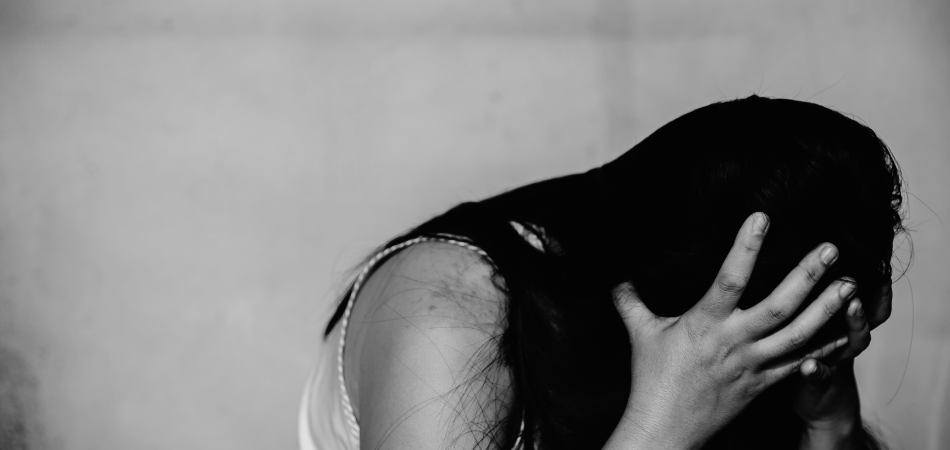
Written by:

Medically Reviewed by:
Last Updated:
February 14th, 2025
Librium addiction
What is Librium?
Librium is a benzodiazepine primarily used to treat anxiety disorders, alcohol withdrawal symptoms and muscle spasms. It works by calming the brain and nerves, helping to reduce feelings of tension and unease.
In the UK, Librium is a prescription-only medication, meaning it can only be legally obtained with a doctor’s prescription.
While it is effective for short-term use, Librium can be addictive if used over a long period, which is why it’s crucial to follow medical advice closely when taking it.
Is Librium addictive?
Librium can be addictive if it’s misused or taken for longer than prescribed. Like many benzodiazepines, it affects the brain by increasing levels of a calming chemical called GABA, which helps ease anxiety and tension. Over time, your body can start to rely on the drug to feel normal, leading to dependence. The calming effects that once helped can make you want to take more, especially if you feel stressed or anxious without it.
When someone tries to stop, withdrawal symptoms like anxiety, sweating, tremors and even seizures can occur, making it difficult to quit without support.
How can a Librium addiction affect someone’s life?
Many people wouldn’t even consider the effects of a Librium addiction, especially since addiction often convinces you that everything is under control. It’s easy to miss how it can quietly take hold of various aspects of your life, affecting you in ways you might not realise until the damage has been done.
Impact on personal relationships
Librium addiction can affect your personal relationships. You may start withdrawing from loved ones, becoming more distant as the addiction takes priority. This can lead to a breakdown of trust, arguments and a general sense of isolation. Emotionally, you might notice heightened irritability, anxiety or even bouts of depression as the drug alters your mood and coping mechanisms.
Decline in work and financial stability
Your work and financial stability may also be impacted. Your performance might drop due to drowsiness, difficulty concentrating or missing work altogether. Over time, this can lead to job loss or financial strain as you try to maintain your addiction.
Physical health effects
Physically, Librium can take a toll on your health. Long-term use can lead to dependency, causing withdrawal symptoms like nausea, sweating and increased anxiety when you try to stop. Continued use may even lead to more serious health complications, including liver damage and cognitive impairment.
What are the signs of Librium addiction?
Recognising the signs of Librium addiction is essential for taking action, whether it’s for your own well-being or helping someone you care about. Addiction can develop gradually, making it difficult to notice at first but understanding the signs can make all the difference in getting help.
Here are the signs of Librium addiction divided into three areas:
Physical signs
- Persistent drowsiness or lethargy that doesn’t improve with rest
- Muscle weakness or lack of coordination, leading to frequent stumbling
- Slurred speech or slowed reflexes
- Experiencing withdrawal symptoms like sweating, tremors or nausea when doses are skipped
Psychological signs
- Growing anxiety or irritability when Librium isn’t available
- Cravings for the drug or planning daily activities around its use
- Difficulty focusing or making decisions
- A sense of needing more Librium to feel the same calming effects as before
Behavioural signs
- Increasing the dose beyond what was prescribed or using someone else’s medication
- Avoiding social situations or responsibilities to use or recover from Librium
- Hiding the extent of use from loved ones or lying about how much is being taken
- Becoming more isolated or secretive in daily life
Am I addicted to Librium?
Addiction can sneak up on anyone, and Librium is no exception. Whether you’re using it as prescribed or not, it’s important to keep tabs on yourself. Addiction often starts subtly and you may not notice the signs until it’s already affecting your life. One of the best ways to check in on yourself is to answer a few honest questions. These can help you assess whether your relationship with Librium is becoming problematic and if it’s time to seek help.
Here are five questions to ask yourself:
- Do you find yourself taking Librium more frequently than prescribed or in higher doses?
- Have you attempted to stop taking Librium but found it difficult due to withdrawal symptoms or cravings?
- Are you spending more time thinking about when you can take your next dose of Librium?
- Have you neglected responsibilities at work, home or in your personal life due to Librium use?
- Are you using Librium to cope with emotions or situations that you used to handle without medication?
If you answered ‘yes’ to any of these questions, it may be worth considering if Librium is starting to control more of your life than it should. Reaching out for help can make all the difference.
Where can I get help for Librium addiction?
It’s completely normal to feel confused and perhaps even frightened when you realise that something meant to help you is now causing serious issues like addiction. But you can take comfort in knowing that there are ways to overcome this. One effective option is inpatient rehab, where you can get the specialised support you need.
At Liberty House, our specialised Librium rehab programme begins with detox, which is a necessary first step to clear your body of the drug safely. Medical staff will be there to support you 24/7 during this stage, making sure the process is as comfortable as possible.
After detox, you’ll begin therapy, which is essential in addressing the root causes of addiction. Traditional approaches like Dialectical Behaviour Therapy (DBT) and group counselling will help you build coping strategies, while holistic therapies like yoga and art provide balance and healing for your mind and body. Together, these therapies work to guide you through recovery and give you the tools you need to stay sober.
Once rehab is complete, you won’t be left on your own. Aftercare services will act as a safety net as you move back into everyday life, ensuring you have continued support as you navigate your recovery journey.
If you or someone you love is struggling with Librium addiction, don’t wait. Reach out to Liberty House today to learn more about our specialised rehab programme and take the first step toward recovery.








